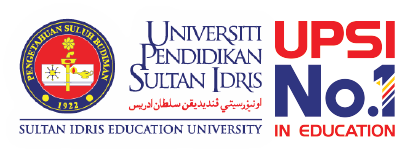Evaluating students’ level of motivation in learning maritime English during the Movement Control Order (MCO) period: Preliminary findings on online distance learning of an STCW course
DOI:
https://doi.org/10.37134/jrpptte.vol11.2.10.2021Keywords:
Covid-19, Keller’s ARCS Model of Motivation, maritime English, MCO, online distance learning, student motivation, STCWAbstract
The global pandemic of Covid-19 has affected the teaching and learning of the STCW courses (Standards of Training, Certification and Watch-keeping for Seafarers) which witnessed the drastic move from normal face-to-face facilitation to full online and distance learning (ODL). This new paradigm shift has resulted in significant changes as well as immense challenges to students who experienced this crisis for the first time. Hence, the study aims to discover students’ motivation level in adapting to the new environment of online learning as experienced by semester 2 students in Maritime English classes via quantitative study adopted Keller’s ARCS Model of Motivation survey administered on 78 respondents. The data collected were analysed and the results showed high level of students’ motivation despite having to undergo challenges in online distance learning during the MCO. Moreover, the four elements of the ARCS Model tested in the experiment indicated very high scores in students’ engagement, confidence, motivation, and satisfaction. This preliminary study has helped to provide a new perspective on online learning as well as students’ motivation to the maritime education and training institutions. Hence, it is hoped that the findings could help them to make continuous quality improvement in pedagogical, technological adaptation and assessment aspects for the benefit of students and stakeholders of the maritime industry.
Downloads
References
Alsawaier, R. S. (2017). The effect of gamification on motivation and engagement.The International Journal of Information and Learning Technology, 35(1), 2018, 56-79. http://dx.doi.org/10.1108/IJILT-02-2017-0009
Bandura A. (1994). Self-efficacy. In: Ramachaudran VS, ed. Encyclopedia of Human Behavior. Vol4. New York, NY: Academic Press; 71–81.
Biggs JB. (1991). Good learning: What is it? How can it be fostered? In: Biggs JB, ed. Teaching for Learning: The View from Cognitive Psychology. Hawthorn, Australia: The Australian Council for Educational Research.
Brophy, J. E. (2013). Motivating students to learn. New York, NY: Routledge https://doi.org/10.1111/bjet.12260_6
Buckley, P. & Doyle, E. (2016). Gamification and student motivation. Interactive Learning Environments, 24(6), 1-14. http://dx.doi.org/10.1080/10494820.2014.964263
Buckley, P., Doyle, E., & Doyle, S. (2017). Game on! Students’ perceptions of gamified learning. Journal of Educational Technology & Society, 20(3), 1–10.
Cook, D.A., Beckman, T.J., Thomas, K.G. & Thompson, W.G. (2009). Measuring motivational characteristics of courses: applying Keller’s instructional materials motivation survey to a web-based course. Academic Medicine, 84 (11), 1505-1509. http://dx.doi.org/10.1097/ACM.0b013e3181baf56d
Deci, E.L., Koestner, R., & Ryan, R.M. (2001). Extrinsic rewards and intrinsic motivation in education: Reconsidered once again. Review of Educational Research, 71(1), 1-27. https://doi.org/10.3102%2F00346543071001001
Gagne´ R.M. (1985). The conditions of learning and theory of instruction (4th ed.) New York, NY: Holt, Rinehart and Winston
Harlen, W. & Deakin Crick, R. (2003). Testing and motivation for learning. Assessment in Education: Principles, Policy & Practice, 10(2), 169–207. http://dx.doi.org/10.1080/0969594032000121270
Hsieh, T.L. (2014). Motivation matters? The relationship among different types of learning motivation, engagement behaviours and learning outcomes of undergraduate students in Taiwan. Higher Education, 68(3), 417-433. https://doi.org/10.1007/s10734-014-9720-6
Keller J.M. (1979). Motivation and instructional design: A theoretical perspective. Journal of Instructional Development, 2(4), 26 –34. http://dx.doi.org/10.1007/BF02904345
Keller, J.M. (2006). Development of Two Measures of Learner Motivation. Florida: Florida States University.
Keller, J.M. (2010). Motivational design for learning and performance: the ARCS model approach. New York: Springer.
Li, C. & Lalani, F. (2020). The COVID-19 pandemic has changed education forever. This is how. Retrieved from https://www.weforum.org/agenda/2020/04/coronavirus-education-global-covid19-online-digital-learning/ https://doi.org/10.25134/ijli.v3i2.3677
Linney, S. (2020). How is the spread of the coronavirus impacting higher education institutions? Retrieved from www.qs.com/how-is-the-spread-of-the-coronavirus-impacting-higher-education-institutions/
Lisnani, L., Putri, R.I., Zulkardi & Somakim. (2020). Designing Moodle features as e-learning for learning Mathematics in COB+VID-19 pandemic. Journal of Physics: Conference Series, 1657, 012024, 1-8. http://dx.doi.org/10.1088/1742-6596/1657/1/012024
Maslow AH. (1943). A theory of human motivation. Psychological Review, 50(4), 370 –396.
Maehr, M. L., & Meyer, H. A. (1997). Understanding motivation and schooling: Where we’ve been, where we are, and where we need to go. Educational Psychology Review, 9(4), 371–409. http://dx.doi.org/10.1023/A:1024750807365
Molaee, Z. & Dortaj, F. (2015). Improving L2 learning: An ARCS instructional-motivational approach. Procedia-Social and Behavioural Sciences, 171, 1214-1222. http://dx.doi.org/10.1016/j.sbspro.2015.01.234
Nunnally, J. C. (1978). Psychometric theory (2nd ed.). New York: McGraw-Hill.
Perlman, D. (2013). Effective teaching and motivation: Application of self-determination theory. Journal of Research, Policy & Practice of Teachers and Teacher Education, 3(2), 31-37.
Perlman, D. (2015). The Teacher Care Project: Enhancing motivation, engagement, and effort of a-motivated students. Journal of Research, Policy & Practice of Teachers and Teacher Education, 5(1), 4-16.
Pikington, C. (2018). A playful approach to fostering motivation in a distance education computer programing course: behaviour change and student perceptions. International Review of Research in Open and Distributed Learning, 19 (3), 282-287. http://dx.doi.org/10.19173/irrodl.v19i3.3664
Ryan, R. M., & Deci, E. L. (2000). Intrinsic and extrinsic motivations: Classic definitions and new directions. Contemporary Educational Psychology, 25(1), 54–67. http://dx.doi.org/10.1006/ceps.1999.1020
Salih, M., Mai, M., & Al Shibli, A. (2016). Students’ motivation toward science learning in secondary schools in Oman and Malaysia: A comparative study. Journal of Research, Policy & Practice of Teachers and Teacher Education, 6(1), 16-24.
Tam, G. (2020). 3 Ways the coronavirus pandemic could reshape education. Retrieved from https://www.weforum.org/agenda/2020/03/3-ways-coronavirus-is-reshaping-education-and-what-changes-might-be-here-to-stay/
Tanveer, M., Bhaumik, A., Hassan, S., & Ul Haq, I. (2020). Covid-19 pandemic, outbreak educational sector and students online learning in Saudi Arabia. Journal of Entrepreneurship Education, 23(3). Retrieved from https://www.researchgate.net/publication/341519892_Covid-19_pandemic_outbreak_educational_sector_and_students_online_learning_in_Saudi_Arabia
Wong, K.-T., Hamzah, M. S. G., & Hamzah, M. (2018). Factors driving the use of Moodle: An empirical study on Malaysian practising teachers’ perspective. Journal of Research, Policy & Practice of Teachers and Teacher Education, 4(2), 15-23.




